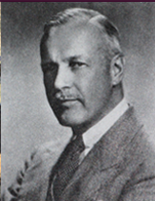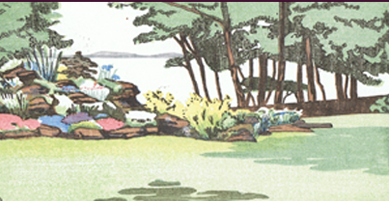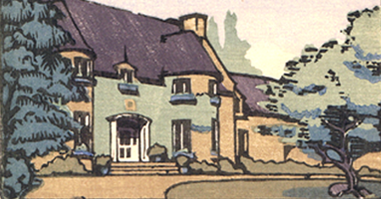 |
|
|||||||||||||||
|
|
 |
|
 |
|
||||||||||||
 |
|
|
||||||||||||||
|
|
|
|||||||||||||||
|
|
|
|
|
|
||||||||||||
|
|
|
|
|
|
|
|
|
|
|
|
|
|||||
|
|
|
|
||||||||||||||
|
|
|
|
|
|
|
|||||||||||
|
|
|
|
|
|
|
|
|
|
|
|
|
|
|
|
|
|
Autobiography:
The Gentleman Who Does Not Like To Have His Name Mentioned
“Whatever you do, don’t mention my name”, he said, and his sensitive face, so animated and smiling a moment before, when he told of his childhood and family background, became suddenly withdrawn. It was as if you had looked through an open door into a warm and friendly house, full of lovely and interesting things then suddenly the door was shut and the curtain drawn.
I was rather bewildered about this abrupt change. But I like his story so much, and it seems to me that it has so much depth, strength and struggle in it, that I feel I have to write it down, even if I cannot disclose his identity. Through generations this family has overcome difficult circumstances, but what touches me most is the struggle of a sensitive child who has been handicapped, and later on was able to transform a sad experience into something beautiful, contributing greatly to the cultural development of Canada. It reminds me so vividly of the oyster, which has the power to transform the irritating grain of sand in its soft flesh into a pearl of rare beauty.
Mr. ? can follow his family tree on his father’s side for eighteen generations. His ancestors lived in Scotland, mostly as farmers. The highlands were grim and austere at that time, and the people were a grim and austere race, fighting savagely, one clan against the other, and together against the enemies from outside. No weakling could survive.
There had been ups and owns in the family, but Mr. ? grandfather was already a respected citizen, a factory owner in Glasgow. He sailed for Canada with his little boy, Mr. ?’s father, was only five year’s old. In one of the eastern towns he settled down, and, starting different business enterprises, laid the foundation of the family’s fortune. It is interesting that he was by disposition not really a business man, but much more a dreamer, a poet, and a lover of nature. He made himself a business man, because of his affection and sense of responsibility towards his wife and children, and he made a success of it. This strong will and the deep-rooted ties to each other are characteristic of this family.
The ancestors of Mr. ?’s mother came to New England at the beginning of the eighteenth century. They were originally French Huguenots, whose religion had been so precious to them that they left their highly cultured homeland for an uncertain future in the New World. This family, later on mixed with some Dutch and English blood, had to endure many hardships in bringing the wilderness under cultivation and in fighting the Indians; but they too succeeded.
Mr. ?’s father and mother married in their thirties, and their desire for children was strong. The mother devoted her whole being to the three sons
which arrived in quick succession. She was a small delicate woman, who suffered from nervous headaches, yet she reached the age of eighty-seven. Reserved in her attitude, she was at the same time very intense in her feeling.
His father possessed tremendous energy and driving power in his youth, and later became one of those wise and kindly old men, who are so valuable to the people around them. Painting and nature were his hobbies. He too died at eighty-seven, surviving his wife by a few months.
Mr.? was the second of the three boys. His first memory is his visit to the barbershop at the age of five or six. Here he sat on the high chair, a delicate, pretty, well-groomed little boy in a checked suit with a white collar, and waited with some awe to have his blond hair cut. Letting his eyes wander, he discovered opposite him on the whitewashed wall, a large and queer animal, some sort of beetle with long legs and a strangely long stinger. He could not take his eyes off this peculiar thing. There was something fascinating about the strange life in it.
From that time on he loved to watch nature. The family’s big stone house, with porches all around, stood in a huge garden, and there was always something new to see with the changing seasons. When the snow melted in the early spring and the brown earth was uncovered, there was so much to wonder about that it was hard to find time for it all. There were earthworms and beetles and butterflies, grass growing greener every day, and buds on the bushes and trees bursting forth. The birds were building their nests, adding one little straw after another, and softening the inside with their own feathers. There they laid their tiny eggs and sat on them with great patience, until lo and behold – young, naked, chirping birds hatched out. Then the parent birds had to fly up and down all day long to catch enough insects to stuff into those big, yellow-rimmed mouths. Flowers grew and developed into beautiful shapes and colours; bees hummed. As summer drew on the air became hot and drowsy. The young birds were big by now and had learned to fly. Time seemed to stand still. Every tree, bush and blade of grass stretched out in the brilliant sunshine. When autumn came with its restlessness, it gave new luscious colours and new vigor to everything for a short while, until at last icy winds swept away all this manifold life, or forced it to hide in the earth.
All this the little boy drank in with great intensity.
He also liked to build huts with his younger brother in the garden, where they would hide and tell each other stories. Or they would make bows and arrows and play Indians. They had donkeys ride and a dog; a greyhound, which had puppies just before Christmas, a mysterious and wonderful event! All this made the little boy happy, so that he did not mind too much the lameness he had since birth that hindered him from joining in the wild games with his brothers and their friends.
Then, one day, when he was seven, something really dreadful happened. While cutting a rag with a knife, his hand slipped and the sharp point went into one of his eyes.
The eye was lost, and to make matters worse, the other eye became infected and the doctors feared he would loose this one. He had to wear a black bandage all the time. There was darkness surrounding him. The world that he loved so much only dimly reached him through sound and touch. He could not see his father and mother, his brothers and the rest of the family. And how difficult it was, when he was allowed to walk, to be inconstant fear that his weak leg might stumble over some unseen object, and that he would hurt himself again. Oh those endless dreary days! And the anxiety he sensed in his parents, even though they tried to conceal it.
But the whole family had resolved to help, to develop his positive strength. Sitting beside him for many hours his mother ead him stories, marvelous stories which fed his imagination and let him forget his misfortune for a while. She was less lucky in her hopes of developing some talent for music in the little boy. She taught him the piano, but there was too much exercise involved, and for a long time he could not enjoy music freely because of this tiring experience.
Every day his father brought all sorts of things to him, but best of all he liked the shells with their different shapes which he could feel and play with. Uncles and aunts and grandparents gave him toys, and talked to him and warmed him with their love.
But there was endless craving for light in the small boy.
Six months after the accident, the black bandage was removed. He could see! And one of the first things he did was to rush to his collection of shells. Never in his life would he forget the overwhelming joy in discovering their manifold beauties.
Life seemed so new, so interesting. More keenly and more sensitively than before the boy observed the things around him. One day the pavement in front of their house being broken up, and he noticed the different colours and designs in the split stones; glittering gold and silver, delicate black lines, rosy, almost transparent hues. He collected the stones, and an uncle, a geologist, told him their names and their development through the ages.
Although he loved his family, he was perhaps most deeply attached to his mother. And then too, there was his grandfather, the poet and the business man, with his sad eyes and kindly mouth and wistful, withdrawn eyes. He was very old by now and was losing his eyesight rapidly. They understood each other, and the boy often visited him in his unpretentious house, on the outskirts of the city. There in the garden they would talk together, the grandfather’ hand resting on the child’s shoulder and the boy leading the way. How proud he felt.
When the boy was eleven years old, his father sold the big house in the city and moved to the country, where he took up farming, along with his other business enterprises. To the boy it as a great loss to give up the stone house with the lovely garden, so integrated with his childhood.
The brothers were sent to boarding school in England, and when they came home only for the summer. It was clear to Mr. ? that he wanted to study Natural History. One of his great heroes was Darwin. He went to Cambridge University and to McGill, full of great plans for the future, when suddenly his eyesight failed. Again there was the threat hanging over him of loosing his vision completely, and the doctors insisted that he should abandon his studies, which involved much use of the microscope and were altogether too strenuous for his eyes.
So his life ambition was shattered. His brothers were serving their country in the army, and from this also he was banned because of his weak leg.
He joined the firm. Following his duty rather than his inclination, just as his grandfather had done. He married and had fine children full of promise. But deep in his soul he felt that there was something else he wanted to do, something that would contribute more to his country’s cultural life – that could make people realize the joys one can have through one’s eyes.
He became a great benefactor of one of Canada’s Museums. All three brothers developed into fine, useful citizens. But the one who had gone through the most hardships, supported by his family’s love, and also perhaps through the strength and harmony his close observation of nature had given him, will be the longest and most gratefully remembered.